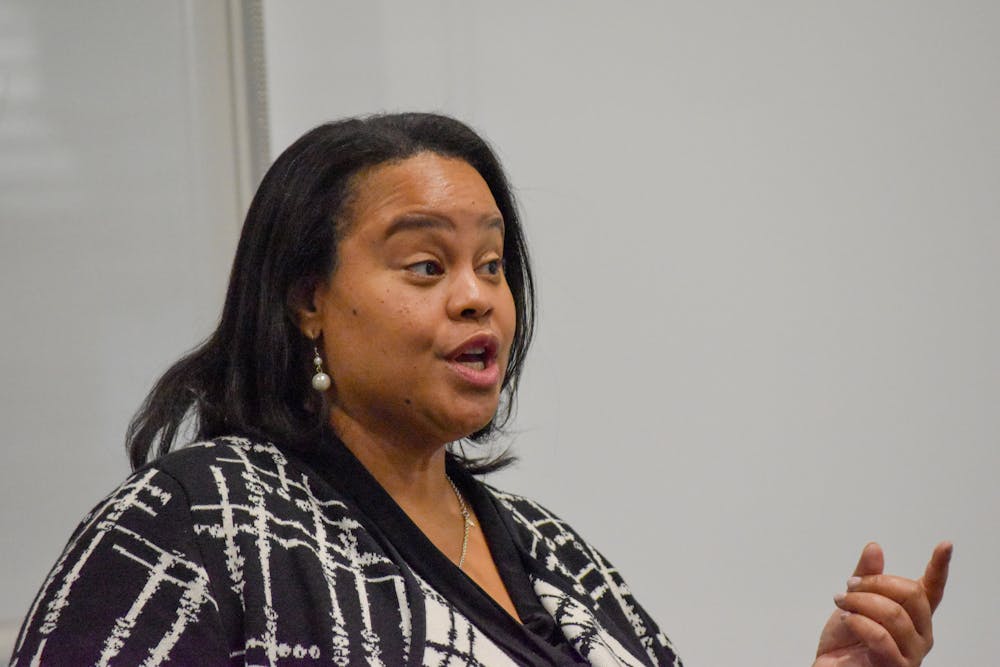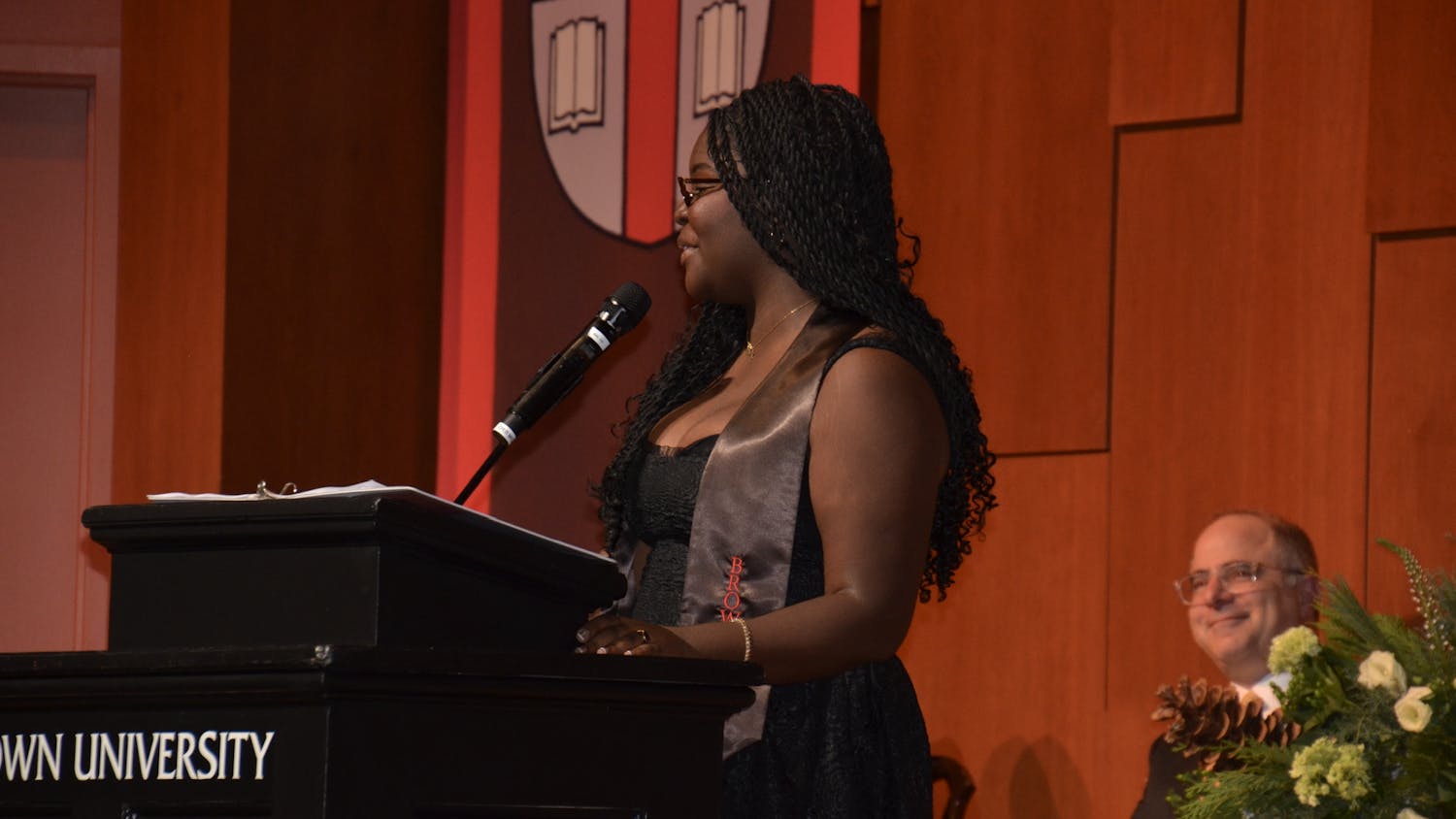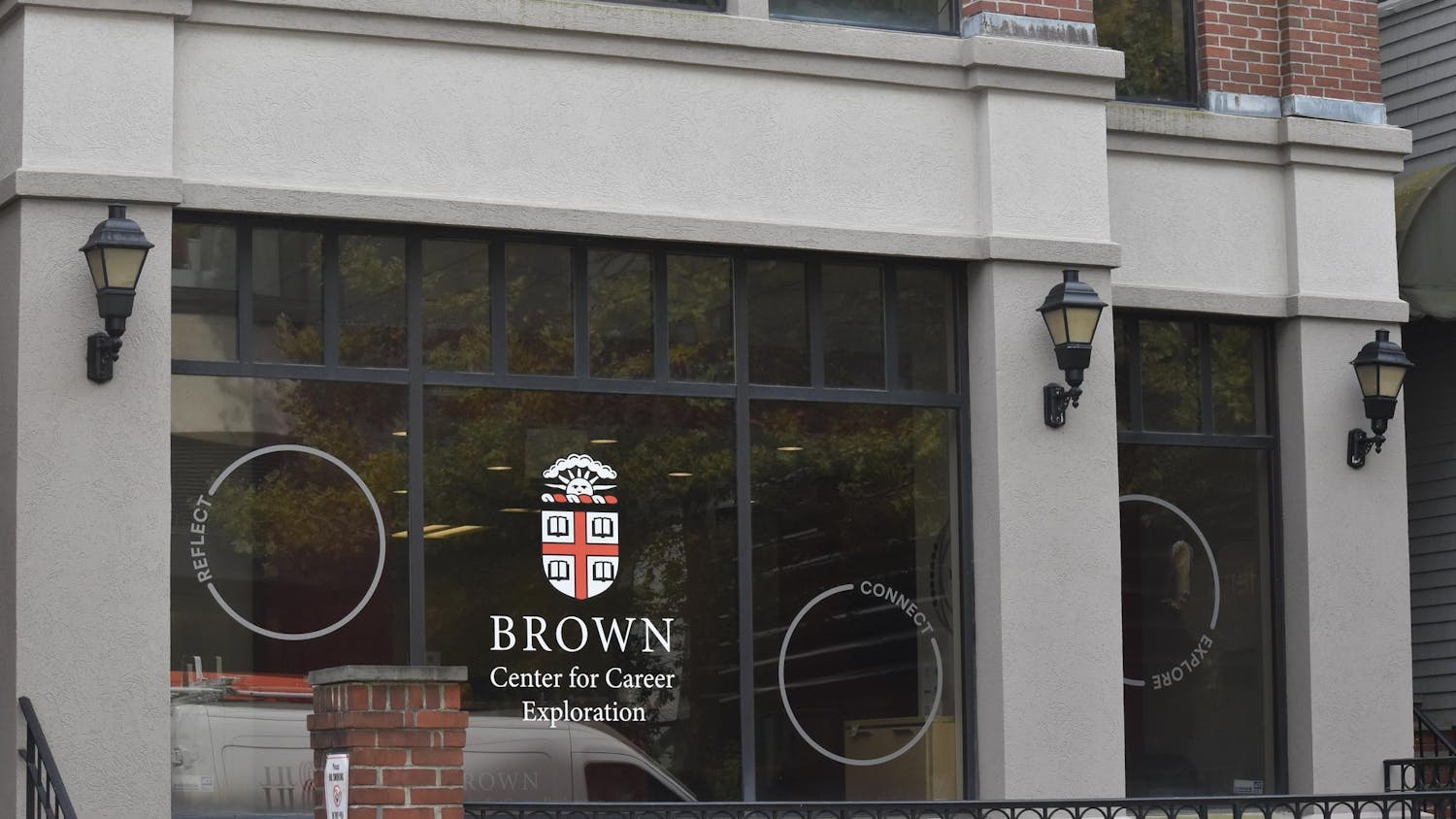Danielle Holley-Walker, dean of Howard University School of Law, spoke at the “Examining Anti-Critical Race Theory Legislation” lecture on Wednesday evening as part of the Watson Distinguished Speaker Series. She began the lecture by sharing her decades of experience teaching classes about race and the law. The first time Holley-Walker taught Critical Race Theory was at the University of South Carolina in a classroom of all white students, most with conservative political leanings. She said that the same class, “under current South Carolina law, would likely not be allowed to be taught.”
Anti-CRT legislation has become more common recently. According to Holley-Walker, 13 statutes of this type have passed to date, and there are 24 other pieces of anti-CRT legislation that have been proposed.
Though the long-term implications of such legislation are still to be determined, this reactionary movement within American politics follows the pattern of “progress in the law on race and then quick backlash” that was first identified by Derrick Bell, the father of CRT, Holley-Walker said.
As a legal scholar, Holley-Walker recounted the history and key tenets of CRT. She emphasized that the theory is built upon the notion that race is a social construct and that racism is systemically embedded into all institutions.
“CRT holds that the law has the potential as a tool for emancipation and racial equality, but only if we take a critical eye to the law as it is and ask the question of ‘how has the law propped up racial inequality and racist structures in our society?’” Holley-Walker said.
The concept of CRT was deliberately turned into an “umbrella term to capture ideas on racial discourse” by conservative thought leaders, Holley-Walker said. This “definitional theft” has taken the real meaning of CRT out of the conversation, instilling a new meaning to “stir up fear,” she added.
“This has nothing to do with the original scholars,” Holley-Walker said. “The goal is just to have something that (conservatives) can put in newspapers to have a decodified term that they can then recodify and annex to an entire range of cultural constructions that are unpopular among white Americans especially.”
Holley-Walker and other scholars, in response to anti-CRT rhetoric, are “reframing what we are now calling anti-CRT statues.” For example, the National Association for the Advancement of Colored People Legal Defense and Educational Fund calls them “anti-truth statutes,” she added.
Despite the fact that CRT is only taught as an elective in law schools and select undergraduate institutions, state level anti-CRT legislation has primarily targeted K-12 education. Drawing from the direct language found in statutes from Texas, Florida and proposed legislation in Oklahoma, Holley-Walker emphasized the danger of vague legislations that could have dangerous impacts.
For example, she cited a statute in Florida that lists concepts that teachers are banned from teaching.
“If you really take the subsections and say you can still teach about sexism, slavery, racial oppression, racial segreation but you should never do it in a way in which an individual could be made to feel discomfort, guilt, anguish or any other form … It’s pretty inconsistent. If you teach about topics like slavery and racial oppression … someone is going to feel discomfort,” she added.
Holley-Walker also said that the impact of such legislation is far-reaching.
“These laws are so vague that they could restrict speech from almost anyone,” Holley-Walker said. “While they are supposed to target one particular group — which is people who are promoting ideas in anti-racism — they are phrased in ways that they could be targeted to lots of different people.”
She also explains that such legislation could have tangibly negative effects on the students in these states.
“Public school populations of many of the states that are most impacted are majority minority,” Holley-Walker said. “Many of these laws are impacting students who … are losing representation in terms of curriculum and the ability to talk about anti-racist concepts.”
Legal action in response to anti-CRT legislation is just beginning, Holley-Walker said. So far, organizations like the American Civil Liberties Union and the NAACP have targeted lawsuits at a particular Oklahoma statute, she added.
“The central argument is essentially that the statute is in violation of the First and Fourteenth Amendment and that the act’s vague, overbroad, discriminatory provisions leave Oklahoma educators with an impossible and unconstitutional choice: avoid topics related to race or sex in class materials and discussions or risk losing their teaching liscenses,” Holley-Walker said.
Viewers in attendance like Amiri Nash ’24 left the lecture with a more in-depth understanding of anti-CRT legislation, saying that he felt he could “explain to someone how people are framing these arguments.”
Noliwe Rooks, chair of and professor in the Africana Studies Department, appreciated the legal perspective that Holley-Walker brought to the conversation.
“Very often when we talk about (CRT), it’s history or education and the actual legal developments are not always there,” Rooks said. “It’s always great, especially now where we’re watching a movement around these areas, to take every opportunity to point out how this particular sausage is made. Having people from different areas of the culture, from law to history, to engage them is really important.”
Dana Richie is a senior staff writer for Arts and Culture and the photo chief. She enjoys using multiple forms of media to capture peoples’ stories and quirks. In her free time, she loves knitting, learning about local history and playing ultimate frisbee.





